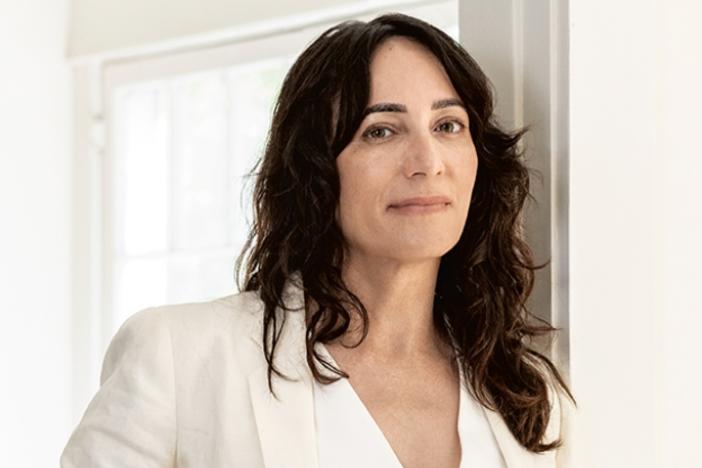Section Branding
Header Content
John Leguizamo went into 'super sleuth dad' mode to help his son learn Latino history
Primary Content
Years ago, actor John Leguizamo was helping his then eighth-grade son with a school project and found a lot less Latino history in the textbook than he expected.
"And so, as super sleuth dad, I got all these books on Latin history on Amazon and went to all the [web] sites — and I was changed," Leguizamo says. "When I found all this information, incredible countless facts and data about our contributions to the making of the U.S. and the world, I ... [went from] feeling small to feeling like a giant."
Leguizamo learned that the Maya people likely had flush toilets, that the Inca practiced skull surgery and that thousands of Latino people fought in the American Civil War.
"These are some of the findings you get," Leguizamo says. "And you're like, 'Wait a minute, what? How is this kept from me? Why is this kept from me?' And then you start to understand that he who writes the history textbooks controls society."
In 2023, Johns Hopkins University released a study finding that 87% of "key topics in Latino history" are either underrepresented in textbooks, or left out entirely. Leguizamo is trying to wrest back some of that control with VOCES American Historia, a three-part PBS docuseries he co-created with director Ben DeJesus. The series features interviews and facts that highlight Latino contributions to American history and culture.
"I wanted [the series] to be like Latino culture was on trial," he says. "I wanted to have evidence to support this, because there's a lot of deniers and they're going to be deniers about our contribution."
Interview highlights
On the difference between Hispanic and Latino
"Hispanic" means you speak Spanish and, for the most part, Hispanics are from Spain. ... We are all Hispanics because we all speak Spanish, but "Latino" means you're not from Spain, means you're from Latin America, means you were colonized. ... We are all Latinos who experience a lot of oppression, slavery, the stealing of our incredible wealth and land wealth and exploitation, for 500 years, that's what Latino means to me.
On growing up seeing white actors playing Latino roles, like in West Side Story
They made me feel like I didn't deserve to be the lead in our own stories. I was made to feel that. Now that I'm a grown man, it's not OK. I'm enraged by it. You took an opportunity of a Latin person. Antonio Banderas playing Latinos. He's not Latino. ... We don't have Latino executives who say, "Look, you're not Latino. Why are you taking Latino roles?" Or you're [Al] Pacino, you're a white Italian, why are you taking playing a Puerto Rican in Carlito's Way and playing a Cuban in Scarface? Those should be Latino roles and it should be Latinos playing them. ...
This Menendez story being done right now [on Netflix about a true story of brothers convicted of killing their parents in 1989] ... It's a Latino story, a horrible Latino story. But there's plenty of Latino actors to play the dad. I love Javier Bardem. I think he's an incredible actor, but he's not Latino. He's a white Spaniard. ... There's tons of Latino actors and talent out there. Put Latinos in Latino roles. Let's not do a disservice. I see so much Latin talent being laid to waste, dreams allowed to desiccate. Use our Latin talent.
On not getting as many auditions as white actors when he was at NYU
They were going to five to 10 auditions a day, and I was going to one every five months for a gang member, a drug dealer, a murderer or a janitor. And I realized, wow, I don't have a shot just because I'm Latino. …
I knew my opportunities were not equal and were not fair. Even if I was as good looking as Brad Pitt — a Latino Brad Pitt — even if I could write like William Shakespeare and Tennessee Williams, or if I could act like Brando, I would not be given that opportunity because I was Latino.
And so I tried to find some other venues and I found performance art. And then I started creating my first show, Mambo Mouth. I would do all these characters and I became a celebrity in those venues. … When Latin audiences found me, my God, it was church. Because they would be crying and screaming and laughing, and it was wild. And that fueled me. That fueled me for my four decades in the business.
On why some Latino immigrants want a stricter border
Some immigrants feel ... empowered by going against other immigrants, and I guess they feel more American or less "othered" if they attack others. I think there's a syndrome of that. And some immigrants are afraid of immigrants taking their jobs because those are the jobs that they might take. ... I mean, the jobs Latinos are doing, nobody wants. That's why they're doing it. And that's why we need immigrants, because immigrants fuel America. They're doing the essential labor. The Mexican immigrants and the Central American immigrants that died on the Maryland bridge, they were doing that infrastructure work. We built Katrina back after Hurricane Katrina. We built Louisiana back. ... We're doing the work. We're feeding America. We're doing all that labor that nobody wants. America does not function without Latino immigrants. It just doesn't. It never has and never will.
Heidi Saman and Susan Nyakundi produced and edited this interview for broadcast. Bridget Bentz, Molly Seavy-Nesper and Beth Novey adapted it for the web.
Bottom Content




